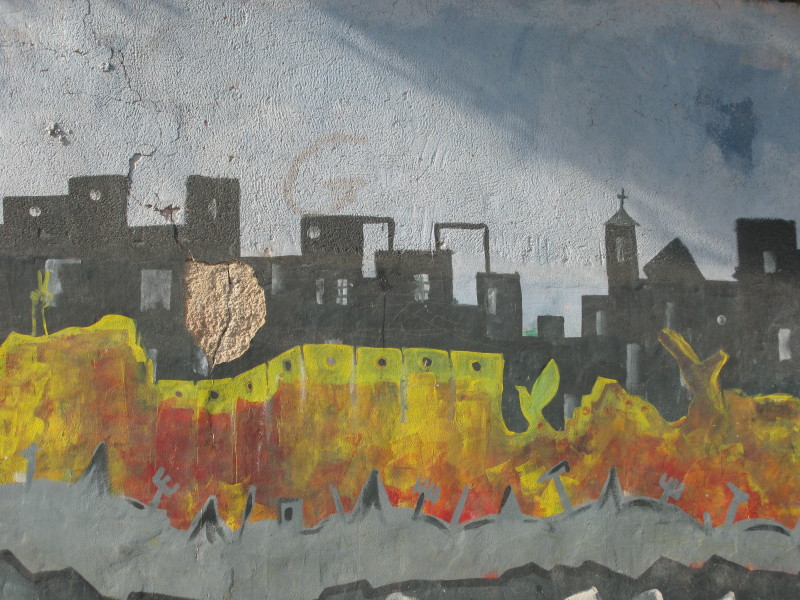I’ve been thinking a lot about what it means to choose a profession “on the edge”, like being an aid worker. And not only to choose in the first place, but also to stay on, sometimes hang in there for decades.
As humanitarians we are caught between romanticising the misery of others, making a career out of it, and living on a sort of emotional rollercoaster that ends only when you get out of the field. But when you’re out…you often don’t know what to do with yourself in a normal world, and for many the only way to fit again is to get back to the field.

Recently I attended a series of talks by photojournalists and humanitarians: as I listened to accounts of war in Bosnia, Iraq, Afghanistan, it sounded as if for these professionals war was the best time of their life. Paradoxically the difficulty of such intense experiences is that they are both painful and enriching, sometimes damaging, often meaningful. As I write from the comfort of my home in London, I remember with longing my time in Palestine, where everything felt much more alive. And I know I will return to that part of the world.
But no matter how meaningful life in the field seems, at some point people crack up. It’s an exhausting lifestyle. For some burnout manifests as loss of compassion, we numb out and shield ourselves and plough through because that’s what’s expected in the sector. Maybe after all when you live immersed in the extreme, and shocking becomes the norm, you learn to shut down to survive. It takes emotional labour, awareness, practice and care for the self to “distance” oneself from the overwhelming emotions that make up the fabric of humanitarianism, without disengaging, without becoming a zombie.
As humanitarians we live on the edge and more often than not some fall off that edge. Then what can heal is probably not another mission, not another field assignment. Yet that’s where we tend to look for solutions, because that’s what we know, that’s our comfort zone.
Former war correspondent Chris Hedges’ writes that “war is a force that gives us meaning”, that “war is zen”. He also writes that what heals from the addiction of war is love. His words have the power to humble any war-junkie out there, his reflection resonated so strongly with me and forced me to confront the fact that other people’s wars indeed give us meaning, they provide a sense of purpose and an identity. Not to mention great career opportunities. And that’s hard to face.
A quote from Chris Hedges’ beautiful book War is a force that gives us meaning:
“There is that rush of war. In an ambush, when danger is that present, there is no past. There is no future. You are thrust into the present in a way that is like a drug. I mean, even colors are brighter. War is Zen, and that becomes a very heady way to live.
We ennoble ourselves in war, especially those of us who leap from conflict to conflict. In Sarajevo, for instance — when you left, you would be sitting in Paris for four or five days [and] all you did was hunger to go back. The culture [of war] took you over.[…] That culture takes over; you don’t function outside of it.
War is one of the most heady and intoxicating, addictive enterprises ever created by humankind. It has an allure, a fascination, a draw that sweeps across national lines, ethnicity, race, religion. […] In every conflict I’ve covered, you reach a point — and I think I reached this point certainly in El Salvador — where you feel that it’s better to live for one intoxicating, empowering moment than ever to go back to that dull routine of daily life, and if your own death is the cost of that, then that’s a cost you’re willing to accept.
As you fall deeper and deeper into that culture, and as it becomes harder and harder to exist outside of it, what you do is finally embrace your own annihilation, because like any addiction, it creates a kind of self-destruction.
There is a search for that constant first high of war that you can never re-create in any other war. […] War is like imbibing a drug. Once that drug is kicked, once that war is over, many decisions that are made in warfare, not only what we do to others but also what we do to ourselves, are exposed for being not only wrong, but stupid.”
It took me a while to write this post, because to suggest that war is something that we crave – as long as it’s other people’s wars and we can safely return home of course – is unsettling.
War is not Zen.

